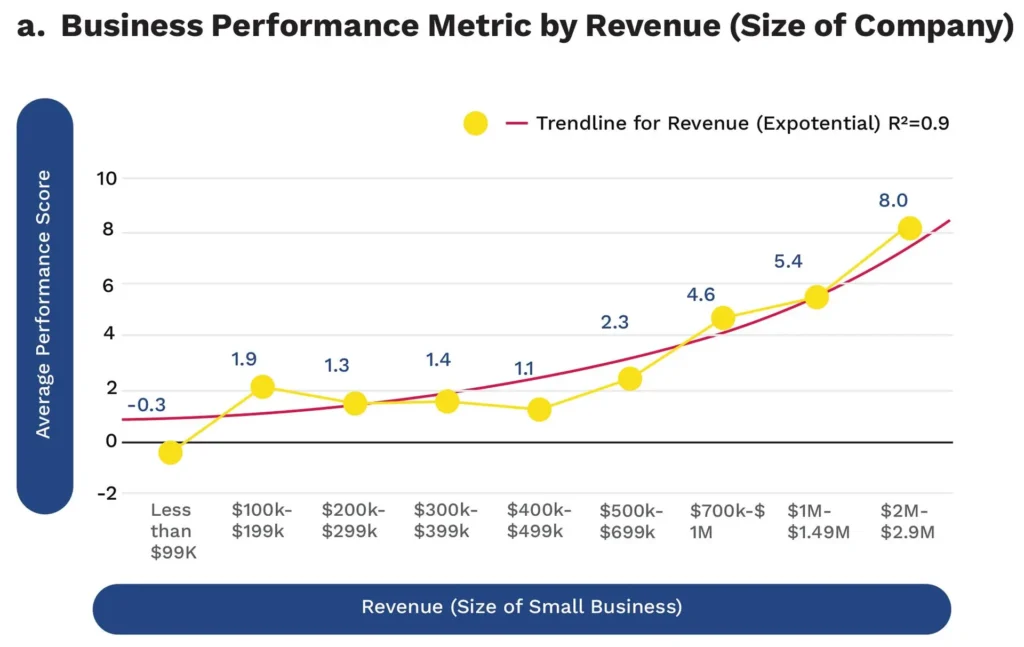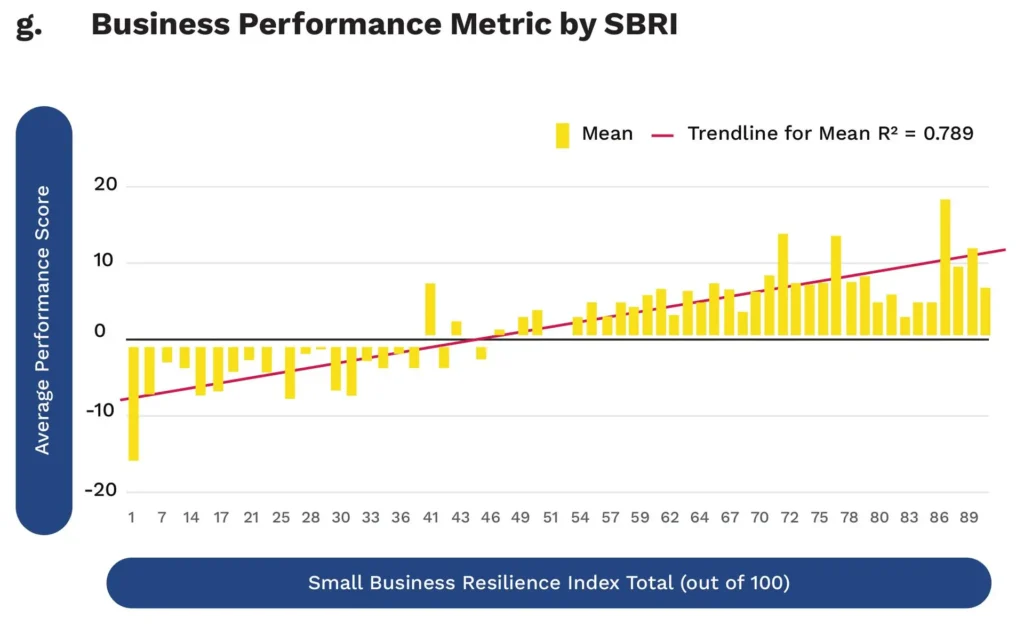Energize Colorado Announces New Culturally Responsive Measure for Small Business Resiliency
78% of 2020 State GDP loss attributed to the smallest businesses while larger ones thrive, K- shaped recovery shows minimal recovery for businesses making less than $500k per year
Denver, December 8th, 2021 – Today, Energize Colorado, CU Leeds School of Business, McKinsey & Co., and Culture Leads LLC announced the first comprehensive index tracking the COVID-19 pandemic’s impacts on the Colorado economy and the barriers they face in building resiliency and inclusivity into their future growth.
“By convening experts in business, public health, innovation, and data science we have created an index that measures and predicts the resilience of small businesses within the state of Colorado in response to COVID-19,” said Wendy Lea, CEO, Energize Colorado.
Adds Lea: “This Small Business Resilience Index (SBRI) helps community leaders understand the social and business challenges small business owners face today and how to increase their capacity in the face of future environmental, cultural shifts and shocks.”
The statistically significant sample pool of business owners reported that the greatest barrier to success was access to capital, which disproportionately impacted businesses with net revenue under $500,000 per year. There is also a ‘K-shaped recovery’ trend, with these smaller businesses lagging behind in the recovery. Our data suggest these businesses lost an estimated $7.5 to $8.2 billion in profit over 2020, equal to 2.3% of Colorado’s total GDP. Study findings also illustrate that the SBRI is highly correlated with small business performance and may be the beginning of a validated, quantifiable metric of resilience that can be used to help guide public policy and localized interventions.
“The Colorado economy lost $9.6 billion in nominal GDP in 2020, but the economy is firmly on the road to recovery,” said Brian Lewandowski, Executive Director of the Business Research Division. “While we believe total employment will recover to pre-pandemic levels in 2022, unique barriers will cause some industries and companies to lag in their recovery.
These findings include:
There is a K-Shaped Recovery
- Businesses with revenue sub $500k, recovery was the largest hurdle – losing up to $8.2B of the state’s total GDP
- Those with greater digital literacy and adaptability were far more likely to succeed as they could more quickly adapt to changes in market conditions including e-commerce, working from home, and digital marketing.

Limited Trust Between Small Businesses and Those Who Serve Them
Lack of timely and consistent information and updates from all levels of government created an environment of distrust that further reduced access to capital, technical assistance, and other resources to directly support a small business recovery.
This trust was even further eroded among BIPOC and Veteran communities, likely amplified by other external cultural shifts and events.
Small businesses also lacked a strong future orientation (hope), and those with higher levels of optimism, adaptability, as well as BIPOC & LGBTQ+ communities were the most orientated towards the future and therefore fared far better in economic recovery. First of Its Kind, Culturally Responsive Index SBRI provides an efficient way to identify the earliest signals of where the economic and business market may be going and how to unlock the dormant capacity of diverse entrepreneurs to build those markets.
“Cultural responsiveness is the ability to learn from and relate to diverse groups of small business owners, employees, customers, and other key stakeholders. Our culturally-responsive approach centers on what can be gained for all Coloradans by weaving together the threads of prior experiences, cultural knowledge, and performance styles used by a wide range of small business owners who influence our state’s shared economic future. This is especially important to understand in a rapidly changing environment spurred by culture shocks and shifts like pandemics, social movements, and the move toward automation. In environments like these, having more strategic options and insights for how we can successfully grow and thrive as a business community benefits the entire Colorado economy,” said Theo Edmonds, co-founder of Culture Leads LLC. Adds Edmonds: “Creating a culturally-responsive, quantitative data baseline allows us to find early signals for optimizing resources and ensuring we get the right support, to the right groups, and in the right way. When it comes to supporting the growth of Colorado’s business community, we know that a one-size-fits-all model is not likely to work. For example, effective small business mentorship and learning are most effective when centered on the individual entrepreneur’s unique goals, strengths, and needs based on the life cycle of their business. A culturally-responsive approach is a holistic one that identifies, nurtures, and uses the many ways entrepreneurs create meaning and economic value for themselves, their customers, and the communities in which they live, work, learn, play, and pray.”

Methodology
A resilience survey instrument was created by Energize Colorado that assessed the social and operational performance of small businesses, based on key measures of business health and success found in the scientific literature. The survey was sent electronically to approximately 14,000 small business owners from Energize Colorado’s database. Data analysis included descriptive statistics and statistical tests measuring the correlation between the SBRI, demographics, and overall business performance, in order to understand predictors of small business resilience.
The Small Business Resilience Index seeks to quantifiably measure the small business ecosystem in order to improve the resilience of small businesses and provide future guidance to small business owners, associations, and governmental leaders in Colorado. Our index is composed of two, interrelated metrics of Resilience Capital: 1) Social Capital, and 2) Operational Capital. Together, these two data sets when combined are referred to as the Small Business Resilience Index (SBRI).
About Energize Colorado
Small businesses and entrepreneurs are the backbone of Colorado’s economy. If they thrive, the communities they operate in thrive. Founded in the wake of COVID-19, but with a long-term mission, Energize Colorado is a nonprofit organization that aims to advance resilience and inclusivity in Colorado’s small business ecosystem. Led by innovative leaders and powered by seasoned volunteers from across Colorado, we leverage our networks and entrepreneurial know-how to advocate on behalf of our small business community. By providing access to capital, free resources, and creating new programs to meet the needs of small businesses, we’re working to bridge the racial and economic divides in Colorado.
Contact Press@EnergizeColorado.com for questions related to the SBRI
